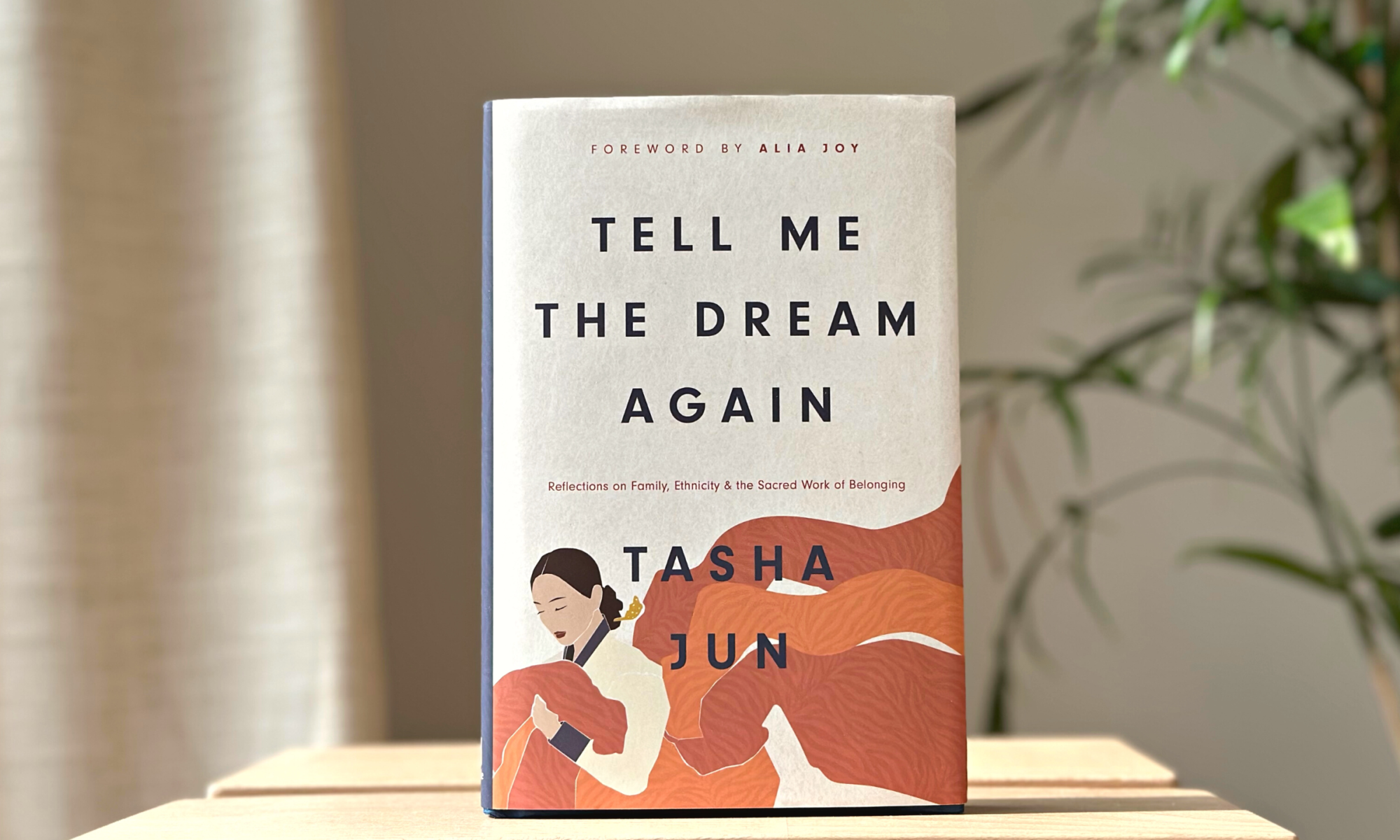How should Asian American Christian authors write? How can the church be a better home to biracial Christians? In this insightful interview conducted over email, Aaron Lee, the editorial curator at SOLA Network, delves into the creative journey of Tasha Jun, the author of the captivating book Tell Me the Dream Again (read our review here).
With a focus on identity, personal growth, and the Asian American experience, Tasha Jun shares her inspiring story and the process behind her book. She also shares her wisdom, experiences, and the deep connections between her life and the intricate tapestry of identity, faith, and community.
Aaron Lee: How did the idea for your book come about, and what was the process like to write it?
Tasha Jun: This book was something I began in a memoir class in college, decades ago. One of our end-of-semester assignments was to write a short memoir piece and when I sat down to write, the only thing that wanted to emerge was my story as it connected to my mother’s story. After that class and years of living, it came back to mind and attached to the original story were many more stories that wanted to be told.
Aaron Lee: Your teacher explained how hiding from who you were had prevented you from writing from your heart. Do you have any other tips for Asian American Christian writers on writing from the heart?
Tasha Jun: Writing from the heart requires access to one’s most honest and unfiltered feelings. This means accessing feelings that don’t come with “shoulds” for forced gratitude or a desire to please. I can’t speak for all Asian American Christians, but I can say that the first step to accessing that part of oneself requires a safe space for release. For me, this first safe space was found in journaling and then in prayer that took place in my journals. I needed a non-judgmental space to “pour out my heart,” and then I learned to “pour out my heart” to God in that same space. This practice made it easier to not only access my heart but share it later on, when I was ready to.
Aaron Lee: You remembered and wrote about your experiences as a child. What are some of the challenges you see for your children in regards to the issues in your book?
Tasha Jun: My kids are finding their own way and developing their own understanding of who they are and how they see themselves as Asian Americans in the world. For them, navigating how others perceive them and beginning to receive that information in both positive and negative ways makes a big impact. I am watching them walk through this and while I can try my hardest to provide resources and my own story – their journeys of embracing all the details of their unique ethnic identity will be one they have to navigate and live out (they are not alone, but they will make their own choices and have their own experiences).
Aaron Lee: I’ve loved reading your thoughts on the Marvel movies online. What is it about these movies that resonates the most with you, especially in regards to your book?
Tasha Jun: I was a latecomer to Marvel, but what I found in the MCU are stories that were outrageous and yet able to pick up on humanity and feelings of “otherness” and messy community in ways that offer hope. I appreciate the way the MCU and Marvel have always tried to illuminate those who might otherwise be on the margins of society – from stories about mutants to nerdy characters. More recently, the focus and value placed on ethnic and racially diverse stories has meant so much to me. Even when it hasn’t been done perfectly, there’s been a clear effort and commitment towards diverse representation in a depth and way that I think the American church should be leading in but sadly is not.
Aaron Lee: You wrote about being biracial and the difficulty of finding a church home. What are some things ethnic-specific churches can do to help those who are struggling to fit in?
Tasha Jun: Notice others. Simply acknowledging the fact that there are people in the room that might not fit the majority (whatever those majority groups are from race to relationship status and more) with tact, thoughtfulness, and a true desire to make more room for those who may often and easily be “othered” can go a long way.
For more, check out our new Books & Reviews page — your one-stop resource for all of your reading needs. It features Asian American authors and issues, book recommendations, and interviews.

